
The INTERNATIONAL PASCAL CAFE 2025 will take place at UTRECHT (IJSSELSTEIN), in Nederlands.

We are delighted to be part of the event, and speak about our little mORMot.
2025-02-15
2025-02-15. Open Source

The INTERNATIONAL PASCAL CAFE 2025 will take place at UTRECHT (IJSSELSTEIN), in Nederlands.

We are delighted to be part of the event, and speak about our little mORMot.
2025-02-01
2025-02-01. Open Source › mORMot Framework

mORMot is a general purpose Open Source library, which features some advanced cryptographic primitives. It is written in modern object pascal, with some assembly for its core process. It is used since years in several security-sensitive projects, and has been audited internally by at least one billion dollar company.

We already spoke about this a few years ago. In the meanwhile, the implementation details of our CSPRNG (Cryptographically Secure Pseudorandom Number Generator), as it is currently in the mORMot 2 repository, have been tuned and proven. Time to share some more information.
2024-10-16
2024-10-16. Open Source › mORMot Framework

It is time for a new mORMot release!

2024-09-06
2024-09-06. Open Source › mORMot Framework

OpenAPI, which was formerly called Swagger, is a set of specifications to encode the server API endpoints definitions into text, mostly JSON.
From this reference text, you can generate client code to access the service, in a vast number of languages.

Delphi seems to be far behind other languages, in terms of this code generation. I found nothing even working for FPC.
Since we needed it for our internal tools at Tranquil IT, we just published the new mormot.net.openapi.pas Open Source unit, which is quite a game changer. Thanks Andreas for starting this project, and testing it in its early age!
2024-02-01
2024-02-01. Open Source › mORMot Framework

Since years, our Open Source mORMot framework offers several ways to work with any combination of arrays/objects documents defined at runtime, e.g. via JSON, with a lot of features, and very high performance.

Our TDocVariant custom variant type is a powerful way of working with such schema-less data, but it was found confusing by some users.
So we developed a new set of interface definitions around it, to ease its usage, without sacrificing its power. We modelized them around Python Lists and Dictionaries, which is proven ground - with some extensions of course.
2024-01-01
2024-01-01. Open Source › mORMot Framework

Last year 2023 was perhaps not the best ever, and, just after Christmas, we think about all people we know still in war or distress.
But in the small mORMot world, 2023 was a fine millesima. A lot of exciting features, a pretty good rank in benchmarks, and a proof of being ready for the next decade.

For this new year, we would like to introduce you to a new mORMot baby: the mget command line tool, a HTTP/HTTPS web client with peer-to-peer caching.
It is just a wrapper around a set of the new PeerCache feature, built-in the framework web client class - so you can use it in your own projects if you need to.
2023-12-09
2023-12-09. Open Source › mORMot Framework

Today, almost all computer security relies on asymmetric cryptography and X.509 certificates as file or hardware modules.
And the RSA algorithm is still used to sign the vast majority of those certificates. Even if there are better options (like ECC-256), RSA-2048 seems the actual standard, at least still allowed for a few years.

So we added pure pascal RSA cryptography and X.509 certificates support in mORMot.
Last but not least, we also added Hardware Security Modules support via the PKCS#11 standard.
Until now, we were mostly relying on OpenSSL, but a native embedded solution would be smaller in code size, better for reducing dependencies, and easier to work with (especially for HSM). The main idea is to offer only safe algorithms and methods, so that you can write reliable software, even if you are no cryptographic expert.
2023-10-31
2023-10-31. Open Source › mORMot Framework

Round 22 of the TechEmpower Frameworks has just finished.
And this time, there was a pascal framework in the race: our little mORMot!
Numbers are quite good, because we are rated #12 among 302 frameworks over 791 runs of several configurations.
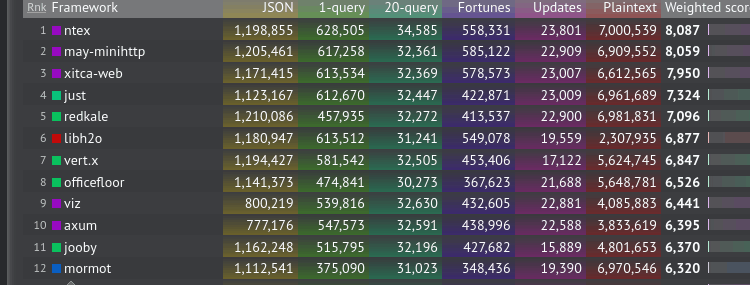
2023-09-08
2023-09-08. Open Source

You may have noticed that the OpenSSL 1.1.1 series will reach End of Life (EOL) next Monday...
Most sensible options are to switch to 3.0 or 3.1 as soon as possible.

Of course, our mORMot 2 OpenSSL unit runs on 1.1 and 3.x branches, and self-adapt at runtime to the various API incompatibilities existing between each branch.
But we also discovered that switching to OpenSSL 3.0 could led into big performance regressions... so which version do you need to use?
2023-07-20
2023-07-20. Open Source › mORMot Framework

Since its earliest days, our mORMot framework did offer extensive regression tests. In fact, it is fully test-driven, and almost 78 million individual tests are performed to cover all its abilities:
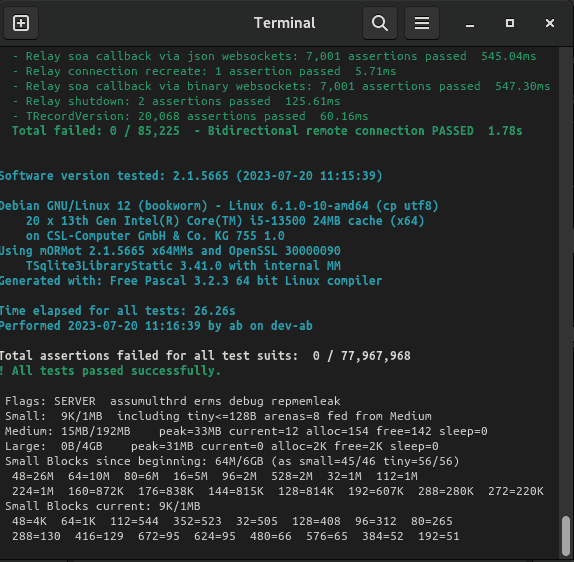
We just integrated those tests to the TranquilIT build farm, and its great LUTI tool. So we have now continuous integration tests over several versions of Windows, Linux, and even Mac!
LUTI is the best mORMot's friends these days.
2023-04-19
2023-04-19. Open Source › mORMot Framework

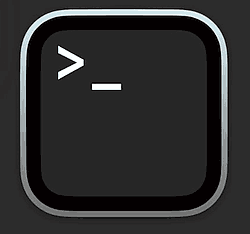
For most projects, we want to be able to pass some custom values when starting it.
The command line is then used to add this additional information.
We have ParamStr and ParamCount global functions, enough to retrieve the information. You may also use FindCmdLineSwitch for something more easy to work with.
The Lazarus RTL offers some additional methods like hasOption or getOptionValue or checkOptions in its TCustomApplication class. Their are better, but not so easy to use, and not available on Delphi.
We just committed a new command line parser to our Open Source mORMot 2 framework, which works on both Delphi and FPC, follows both Windows and POSIX/Linux conventions, and has much more features (like automated generation of the help message), in an innovative and easy workflow.
2023-01-10
2023-01-10. Open Source › mORMot Framework

The mORMot 2 framework is about to be released as its first 2.0 stable version.

The framework feature set should now be considered as sealed for this release.
There is no issue reported still open at github or in the forum.
Please test it, and give here some feedback to fix any problem before the actual release!
We enter a framework code-freeze phase until then.
2022-08-12
2022-08-12. Open Source › mORMot Framework

Starting with its version 5.1, MongoDB disabled the legacy protocol used for communication since its beginning.
As a consequence, our mORMot client was not able to communicate any more with the latest versions of MongoDB instances.

Last week, we made a deep rewrite of mormot.db.nosql.mongodb.pas, which changed the default protocol to use the new layout on the wire. Now messages use regular MongoDB Database Commands, with automated compression if needed.
No change is needed in your end-user MongoDB or ORM/ODM code. The upgrade is as simple as update your mORMot 2 source, then recompile.
2022-07-09
2022-07-09. Open Source › mORMot Framework

Since the beginning, we delegated the TLS encryption support to a reverse proxy server, mainly Nginx. Under Windows, you could setup the http.sys HTTPS layer as usual, as a native - even a bit complicated - solution.
Nginx has several advantages, the first being a proven and efficient technology, with plenty of documentation and configuration tips. It interfaces nicely with Let's Encrypt, and is very good for any regular website, using static content and PHP. This very blog and the Synopse web site is hosted via Ngnix on a small Linux server.
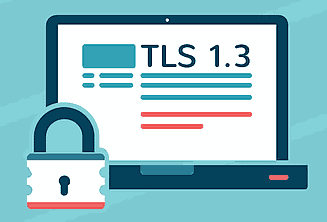
But in mORMot 2, we introduced a new set of asynchronous web server classes. So stability and performance are not a problem any more. Some benchmarks even consider this server to be faster than nginx (the stability issue mentioned in this post has been fixed in-between).
We just introduced TLS support of our socket-based servers, both the blocking and asynchronous classes. It would use OpenSSL if available, or the SChannel API layer of Windows. Serving HTTPS or WSS with a self-signed certificate is just a matter of a single parameter now, and performance seems pretty good, especially with OpenSSL.
2022-02-15
2022-02-15. Open Source › mORMot Framework

The official release of mORMot 2 is around the edge. It may be the occasion to show some data persistence performance numbers, in respect to mORMot 1.

For the version 2 of our framework, its ORM feature has been enhanced and tuned in several aspects: REST routing optimization, ORM/JSON serialization, and in-memory and SQL engines tuning.
Numbers are talking. You could compare with any other solution, and compile and run the tests by yourself for both framework, and see how it goes on your own computer or server.
In a nutshell, we almost reach 1 million inserts per second on SQLite3, and are above the million inserts in our in-memory engine. Reading speed is 1.2 million and 1.7 million respectively. From the object to the storage, and back. And forcing AES-CTR encryption on disk almost don't change anything. Now we are talking.
2022-01-22
2022-01-22. Open Source › mORMot Framework

To ensure thread-safety, especially on server side, we usually protect code with critical sections, or locks. In recent Delphi revisions, we have the TMonitor feature, but I would rather trust the OS for locks, which are implemented using Windows Critical Sections, or POSIX futex/mutex.

But all locks are not born equal. Most of the time, the overhead of a Critical Section WinAPI or the pthread library is not needed.
So, in mORMot 2, we introduced several native locks in addition to those OS locks, with multi-read/single-write abilities, or re-entrancy.
2021-12-19
2021-12-19. Open Source › mORMot Framework

Generics are a clever way of writing some code once, then reuse it for several types.
They are like templates, or compiler-time shortcuts for type definitions.
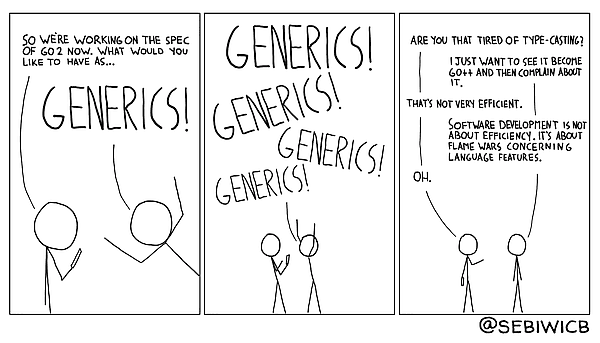
In the last weeks, we added a new mormot.core.collections.pas unit, which features:
IList<> List Storage;IKeyValue<> Dictionary Storage.In respect to Delphi or FPC RTL generics.collections, this unit uses interfaces as variable holders, and leverage them to reduce the generated code as much as possible, as the Spring4D 2.0 framework does, but for both Delphi and FPC. It publishes TDynArray and TSynDictionary high-level features like indexing, sorting, JSON/binary serialization or thread safety as Generics strong typing.
Resulting performance is great, especially for its enumerators, and your resulting executable size won't blow up as with the regular RTL unit.
2021-11-16
2021-11-16. Open Source › mORMot Framework

EKON 25 at Düsseldorf was a great conference (konference?).
At last, a physical gathering of Delphi developers, mostly from Germany, but also from Europe - and even some from USA! No more virtual meetings, which may trigger the well known 'Abstract Error' on modern pascal coders.
There were some happy FPC users too - as I am now.
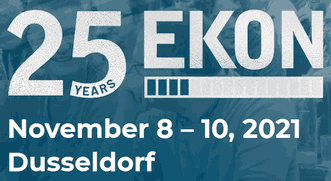
I have published the slides of my conferences, mostly about mORMot 2.
By the way, I wish we would be able to release officially mORMot 2 in December, before Christmas. I think it starts to be stabilized and already known to be used on production. We expect no more breaking change in the next weeks.
2021-09-21
2021-09-21. Open Source › mORMot Framework

The latest revision of Delphi, named Delphi 11 Alexandria, is out.
A lot of new features, some enhanced platforms. Nice!
But it is also for us the opportunity to come back to some breaking changes, which appeared in Delphi 10.4 earlier this year, and are now "officially" part of Delphi 11.

The main breaking change of Delphi 10.4 and later, as reported by mORMot users, is the new lifetime of local variables.
TL&LR: a local variable which is not explicitly declared, but returned by a function may be released as soon as it is not used any more, whereas in the original implementation, it was allocated as a regular local variable, and we could expect its lifetime to remain active up to the end of the function. With Delphi 10.4, it is not the case any more: the compiler could release/clear the local variable sooner, to reduce the allocation pressure.
Idea behind this change is that it may have better register allocation within the function, so it "may" theoretically result in faster code. Not convinced about it, anyway - we will discuss that.
The main thing is that it could break existing code, because it breaks the Delphi compiler expectation since decades.
Some perfectly fine working code would end to work as expected. We have identified several use cases with mORMot which are affected by this change. Since it seems there will be no coming back from Delphi point of view, it is worth a blog article.
2021-08-17
2021-08-17. Open Source › mORMot Framework
Last weeks, we have enhanced mORMot support to one of the more powerful AARM64 CPU available: the Ampere Altra CPU, as made available on the Oracle Cloud Infrastructure.
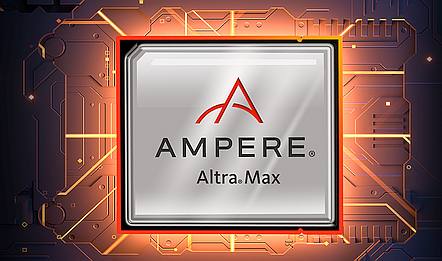
Long story short, this is an amazing hardware to run on server side, with performance close to what Intel/AMD offers, but with almost linear multi-core scalability. The FPC compiler is able to run good code on it, and our mORMot 2 library is able to use the hardware accelerated opcodes for AES, SHA2, and crc32/crc32c.
« previous entries - page 1 of 3